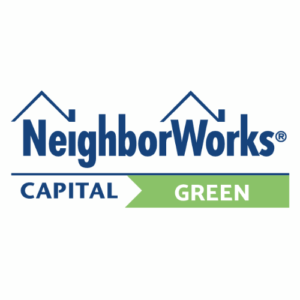Affordable Housing and Civil Rights Groups Applaud Rule and Urge Additional Measures
A coalition of affordable housing and civil rights organizations applaud Monday’s announcement from the Federal Housing Finance Agency (FHFA) finalizing a rule on fair housing, fair lending, and equitable housing finance (EHF). The FHFA’s new rule on EHF plans will provide greater market access to underserved communities. It also codifies FHFA’s fair lending oversight, establishes its supervision authority for unfair or deceptive acts or practices, and formalizes its requirement for lenders to collect, maintain, and report borrower language preference. The FHFA also announced that it will create a new division to conduct examinations on meeting mission-related goals, which include affordable housing, community development, diversity and inclusion, consumer protection, and fair lending.
The rule is a major step forward in addressing issues of equity in the housing finance system, particularly for people of color and others chronically underserved by the mortgage market. FHFA’s final EHF rule includes some key improvements over the proposed rule, including a requirement that the FHFA publish a narrative evaluation of each Government-Sponsored Enterprise’s plan performance. This information provides an opportunity for the public to learn of plan successes and areas for continued attention, which the rule, as it was initially proposed, lacked.
The coalition urges FHFA to take additional steps to further strengthen the program and build on the new rule by increasing transparency and accountability. For example, the rule and its implementing guidance should include plan development guidelines, a publicly disclosed evaluation system with actual ratings, and a requirement to report performance on each objective in each plan. The groups also advocate for language preference collection to occur as part of the mortgage servicing process, not just when loans are first made.
“The new rule announced by the FHFA today is a major milestone in the push to advance equity and strengthen protections for consumers of color and other underserved communities,” said Odette Williamson, senior attorney and director of the Racial Justice and Equal Economic Opportunity Project. “We especially applaud the creation of the Division of Public Interest Examinations to hold the Enterprises accountable for fulfilling their public interest mandate. We look forward to working with the FHFA to build on the foundation provided by this new rule to push for greater transparency and accountability to support the needs of consumers who speak English with limited proficiency, close the Racial Homeownership Gap, and support renters in their housing journey.”
“The Underserved Mortgage Markets Coalition (UMMC) is grateful to have had the opportunity to offer input throughout this process and is pleased to see the various improvements this new rule will have on expanding market access to underserved communities,” said Jim Gray, senior fellow at the Lincoln Institute of Land Policy. “We encourage the FHFA to continue building on and evaluating the EHF plan to ensure the program remains robust and effective over time, and we look forward to supporting that effort.”
“We applaud FHFA’s release of the Equitable Housing Finance Plan final rule and agree with Director Thompson that every step to bring more equity into the housing finance system is a step in the right direction. We must find even more ways to make the housing finance system more equitable and increase affordability for renters and homeowners alike,” said James Peffley, CEO of NeighborWorks Capital.
The New Hampshire Community Loan Fund has been providing fair, fixed-rate, 30-year mortgages to manufactured-home buyers for more than 20 years. We are encouraged by the Equitable Housing Finance Rule and hope it will open up more financing for these valuable assets across the country,” said Steve Saltzman, President and CEO of the New Hampshire Community Loan Fund.
“Ceres applauds the FHFA’s proactive approach in finalizing this pivotal rule on equitable housing finance,” said Steven M. Rothstein, managing director of the Ceres Accelerator for Sustainable Capital Markets. “By bolstering existing fair lending oversight and adding new requirements for fair housing and lending, this new rule is essential to promoting equitable and sustainable housing opportunities for underserved communities.”
“The Federal Housing Finance Agency’s (FHFA) new rule on fair housing and equitable finance is a positive step for equity in the housing market, especially for Latinos and other underserved communities. This rule and request for information strengthen FHFA’s oversight and introduce critical measures, such as support for first-generation homebuyers and better understanding of language preference. These plans are critical to closing homeownership gaps by supporting lenders who create special-purpose credit programs and enhancing fairness and stability in the housing finance system. UnidosUS applauds these efforts and is committed to working with FHFA to ensure that these initiatives effectively provide more homeownership opportunities for Latinos and first-generation homebuyers,” said Laura Arce, Senior Vice President of Economic Initiatives for UnidosUS.
The following organizations have co-signed this statement:
American Council for an Energy Efficient Economy (ACEEE)
Ceres Accelerator for Sustainable Capital Markets
Consumer Federation of America
Institute for Market Transformation (IMT)
Lincoln Institute of Land Policy
Local Initiatives Support Corporation
National Council of State Housing Agencies
New Hampshire Community Loan Fund
About the National Consumer Law Center
Since 1969, the nonprofit National Consumer Law Center® (NCLC®) has worked for consumer justice and economic security for low-income and other disadvantaged people in the U.S. through its expertise in policy analysis and advocacy, publications, litigation, expert witness services, and training.
About the Lincoln Institute of Land Policy
The Lincoln Institute of Land Policy seeks to improve quality of life through the effective use, taxation, and stewardship of land. A nonprofit, private operating foundation whose origins date to 1946, the Lincoln Institute researches and recommends creative approaches to land as a solution to economic, social, and environmental challenges. Through education, training, publications, and events, the Lincoln Institute integrates theory and practice to inform public policy decisions worldwide.
About the Underserved Mortgage Markets Coalition
The Underserved Mortgage Markets Coalition (UMMC), an initiative of the Lincoln Institute, consists of 34 leading US affordable housing organizations seeking to hold Fannie Mae and Freddie Mac (the Enterprises) accountable to their founding purpose: to bring housing finance opportunities to American families not traditionally served by the private market. The UMMC focuses on three actions: tracking the Enterprises’ DTS and EHF efforts, advocating for meaningful plans and policies, and working constructively with the Enterprises and FHFA to service underserved markets.











